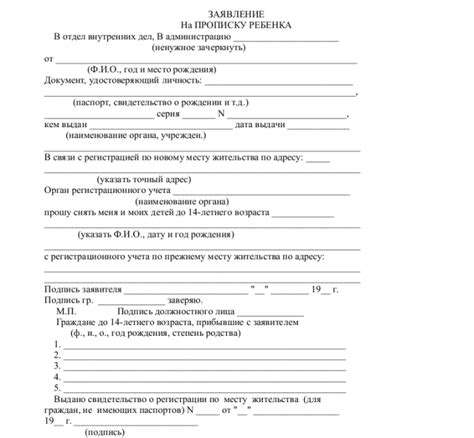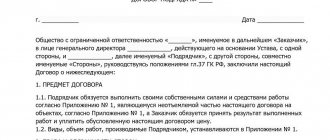Registration in non-residential premises new law
Temporary registration is a mandatory condition for citizens to live in a city where they do not have their own housing. Essentially, it is a way for the state to control the movement of citizens. According to current legislation, a person may not complete the relevant documents during 90 days of stay in another city. After the specified period, staying without registration is punishable by a fine. How to make a temporary registration, what documents are needed, validity periods and cost of services.
Here are perhaps the most common questions related to this topic. Let's try to give as detailed an answer as possible. What does this concept mean? Temporary registration is the registration of a citizen at the place of his actual residence. Now it is replaced by the word - registration. The registration itself may be temporary or permanent.
In the first case, a person draws up documents for a certain period, during which he can live in another city. In the second, this is the citizen’s main place of residence. Please note that temporary registration does not oblige a person to be discharged from his permanent place of residence. Why is this necessary? Along with the main registration, temporary residence gives a person the right to enjoy social benefits. In addition, this is a prerequisite for employment, obtaining a driver’s license, bank loan, and medical care.
An interesting feature is the temporary registration of the child. According to the law, lack of registration cannot serve as a reason for refusal to enroll children in general education and preschool institutions.
But reality says otherwise. The child is admitted to the school or kindergarten at the place of his registration. Registration procedure and cost Temporary registration without permanent registration is possible only with the consent of the home owner. You can register in another city by contacting the Federal Migration Service. When submitting documents, not only the citizen registering must be present, but also the owner of the apartment. We remind you that non-permanent registration in another city does not serve as a basis for registration at the main place of residence.
What documents are needed? Filled out and signed by the citizen submitting documents for temporary registration. Please note that the property owner also signs the document; passport. In this situation, it is impossible to register using a foreign passport or other identity card; documents serving as the basis for residence. In our case, this is a lease agreement concluded between the owner and the tenant. Please note that if the property is in shared ownership, you will need to obtain written consent from all co-owners; extract from the house register.
Usually required if a citizen wants to obtain temporary registration in a country house. Please note that registration can be obtained not only by personally contacting the Federal Migration Service. The law allows documents to be sent by registered mail or through State Services. If you decide to use postal services, documents must be certified by a notary, especially the owner’s consent to provide you with temporary registration. After receiving such a letter, FMS employees send the applicant a notification with the date when he can appear for registration.
Temporary registration through State Services looks almost identical. After registering on the website, the citizen goes to the Federal Migration Service section and fills out an application form. This method differs from the previous ones in that registration through State Services does not require the consent of the home owner. In addition, temporary registration in another city through State Services allows you to save time and nerves.
After submitting the necessary documents, you can register using any of the above methods within three days. Some citizens are interested in the validity period of temporary registration. The validity period of the document varies from one month to 5 years. After the validity period expires, you need to collect documents and submit an application again. How much does temporary registration cost? For Russian citizens this procedure is free. Therefore, passport office employees have no right to collect fees or demand payment for their services.
For citizens of other states, the cost of temporary registration is rubles. In large cities there are legal centers that, along with the Federal Migration Service, register citizens, but do this on a paid basis. Interestingly, there is no end to clients in such intermediary organizations. But by contacting an intermediary, citizens are at great risk. Here are some reasons: fake forms with fake stamps are issued, which are not registered with the Federal Migration Service.
If a citizen is caught with such a fake by police officers, in addition to a fine for being without registration, he faces charges of forgery of documents; Intermediaries usually do not require a person’s actual residence at the place of registration, so several residents can be registered at one address. Such addresses are calculated by police officers, and the registration documents are canceled.
Owner's risks Some homeowners refuse to let tenants in, citing their reluctance to register a tenant on their property. What are the consequences of temporary registration for the owner? Let's understand the tenant's rights.
Having issued temporary registration, a person has the right to live in the owner’s apartment for a specified time. Typically, the time frame is set by the terms of the lease agreement. Temporary registration does not give you the right to make any transactions with real estate. Please note that a temporary tenant has the right to register his newborns and minor children in the rented apartment; the owner’s consent is not required for this.
This is the point that confuses many homeowners. What does this mean for the owner? Basically nothing. The only thing the landlord cannot do is evict the tenants with a newborn child onto the street before the lease expires. Taking these features into account, it is always necessary to document the time frame of the lease agreement. Please note that the owner cannot evict temporary residents, citing the sale of housing.
Even if the apartment is sold, registration gives people the right to occupy the premises until the lease expires. Please note that temporary registration of a newborn or minor child gives the tenant the right to demand from the owner an extension of the registration period. If the latter refuses, legal action may follow. To avoid unpleasant situations, these points must be discussed in advance. Please note that the owner of the premises bears full responsibility for the actions of the tenant.
If the tenant causes damage to the neighbors' property, the landlord will be responsible. In cases where the procedure is delayed due to the fault of the tenant, responsibility falls on the latter. The state has established strict limits for this procedure, violation of which can lead to large penalties.
Some people are interested in whether it is possible to register in non-residential premises, so we will consider this issue in detail. Legislative framework Legislation on living conditions of citizens.
At the moment, there are two types of registration: permanent, when a specific citizen is the owner of a residential premises and permanently resides in it, such registration is not limited by temporary barriers; indefinite, that is, lasts until the property is alienated; temporary, it implies registration in a residential premises that does not belong to the citizen and is not his property, and is limited to a certain period from 30 days to 5 years.
The following legislation regulates these issues. Law of the Russian Federation on registration of citizens of our country and persons who temporarily reside on its territory. This is a fundamental normative act, which gives the concept of temporary and permanent registration, and also regulates the procedure for registration.
According to its norms, any person can register only in residential premises. In addition, this regulatory act establishes clear deadlines for registration. Various Government Decrees that regulate the registration procedure itself, the list of documents required for this, as well as the rights and obligations of officials of the Federal Migration Service carry out registration.
Code of Administrative Offences. Its norms state that in case of violation of the registration deadlines, a report is drawn up against the culprit, and he is obliged to pay a fine. The amount can range from 1 to 9 thousand rubles. It is important to remember that administrative protocols for late registration can be drawn up by migration service employees, as well as local police inspectors.
Registration in non-residential premises Now you need to understand the question of whether it is possible to register in non-residential premises. The law is categorical in this regard, and explains that registration can only be made in residential premises, which include apartments, households, rooms in dormitories, as well as communal residential premises.
In addition, temporary registration is permitted in places of temporary stay of citizens, these can be hotel rooms, medical institutions, places of serving penal colonies, as well as rented housing. In premises that are removed from the housing stock, or built for the purposes of production or provision of services, registration of citizens cannot be carried out even if the owner wishes to carry out such actions. But if we talk about legal loopholes in this matter, then this problem can only be solved by converting non-residential premises into residential ones.
It is important to remember that in some hostels there is such a service as temporary registration without reference to any room. This is allowed by regulations, but registration in this case will be temporary and will not give the right to occupy a specific residential premises, even for temporary residence.
There are situations when a particular citizen has a dacha, which is located in a cooperative, or has been purchased and is privately owned. Therefore, such persons begin to believe that they can register there. It must be said right away that this is not so, and in order to carry out such manipulations, it must be transferred to housing stock. It is no secret that, at their core, country houses are intended for living and have all the necessary conditions for this. But there are two types of ownership of them: collective, that is, the country house is located in a cooperative on a specific plot of land called a share, and is not privatized by a citizen; private, when a country house is privatized and the ownership of it is registered in a different way.
Liability and fines
The use of premises unsuitable for living as residential, namely, for permanent residence, is fraught with punishment under Art. 19.15 Code of Administrative Offenses - violation of passport regime.- Living outside the place of permanent registration is punishable by an administrative fine of 2-3 thousand in the regions, up to 5 thousand in federal cities.
If a person lives in a non-residential premises, but in the region where he is permanently registered, then the punishment under Art. 19.15 Code of Administrative Offenses does not threaten him.
Sometimes Rospotrebnadzor is involved in identifying illegal tenants . When evicting and choosing the method of punishment, the service is guided by Art. 6.4 Code of Administrative Offenses “Violation of sanitary and epidemiological requirements for the operation of buildings and structures.”
Article 6.4 of the Code of Administrative Offenses of the Russian Federation. Violation of sanitary and epidemiological requirements for the operation of residential premises and public premises, buildings, structures and transport
Violation of sanitary and epidemiological requirements for the operation of residential premises and public premises, buildings, structures and transport -
entails the imposition of an administrative fine on citizens in the amount of five hundred to one thousand rubles; for officials - from one thousand to two thousand rubles; for persons carrying out entrepreneurial activities without forming a legal entity - from one thousand to two thousand rubles or administrative suspension of activities for a period of up to ninety days; for legal entities - from ten thousand to twenty thousand rubles or administrative suspension of activities for a period of up to ninety days.
Read more: How to obtain Abkhaz citizenship as a citizen of the Russian Federation
Rospotrebnadzor is usually notified of illegal residents by vigilant neighbors. As punishment, fines are applied to violators: up to 2 thousand rubles for individuals, up to 20 thousand rubles for entrepreneurs.
In Moscow and St. Petersburg, the FMS previously agreed to help clear non-residential premises from illegal tenants. After the reorganization of the service, the district police officer needs to report Tajiks living in the basement or homeless people in the attic; he will determine how the authorities can influence this situation.
It is illegal to live in non-residential premises in Russia . Legislative acts strictly describe the requirements that a property suitable for living must have. If the property meets these requirements, it can be converted into housing status through the municipality or through the court. Garages, apartments, and country houses do not always have residential status, but no one can prohibit the owner from living there if he does not interfere with anyone.
If you find an error, please select a piece of text and press Ctrl+Enter.
Didn't find the answer to your question? Find out how to solve exactly your problem - call right now:
+7 (Moscow) It's fast and free!
By Oleg Perov / 20th July, 2021 / Administrative law / No Comments

Over time, there are more and more non-residential premises. They are bought, rented out, their purpose changed, transferred from residential to non-residential.
In a word, they are the subject of many legal relations. The main condition that the law sets for them is not to live in them. However, given the resourcefulness or despair of many citizens, these premises are often used for other purposes.
- Letter of the law
- Is it possible to live there?
- Is there a penalty for registration?
- Responsibility for this type of use of commercial premises
Rules of the law on registration
In July 1997, Resolution No. 713 adopted the rules for registration and deregistration from an apartment.
The requirements of the rules apply to all earthlings, regardless of citizenship.
The act states that although a person is free to live anywhere, he is obliged to notify government agencies about the place of actual residence.
A notification is nothing more than a registration.
The Law on Registration and Registration establishes two types of registration:
- temporary;
- constant.
A person is constantly registering:
- in your own home;
- removable;
- in official or municipal;
- with relatives (if the citizen intends to live here permanently).
And temporary housing is recognized:
- sanatoriums, holiday homes, tourist centers and hotels;
- boarding houses, boarding schools and other social institutions;
- prisons, colonies, pre-trial detention centers;
- barracks of military units and military camps (for conscripts and contract soldiers);
- other people's premises.
We talked in more detail about registration, as well as temporary and permanent registration, in this article.
Is there a penalty for registration?
To what extent are permanent and temporary registration compatible? In most cases, you are allowed to have both at the same time.
Utility services are paid at rates calculated for commercial premises. This type of premises is sold in office buildings, hotels and other buildings identified as hotels.
This means that you need to receive a written refusal from the Pension Fund to pay a pension, and file a claim in court... But not on the grounds you want - to establish the fact of residence...
A detailed explanation of the procedure for registering Russian citizens of the Federation is given in the act “Administrative Regulations of the FMS”.
Responsibility for this type of use of commercial premises
The law does not provide for direct liability for the use of non-residential premises for residence. There is no article dedicated to this particular offense. However, this can be punished under another article - 6.4 of the Code of Administrative Offenses of the Russian Federation. The main thing is to prove that residents of utility rooms violate sanitary and epidemiological rules.
Article 6.4 of the Code of Administrative Offenses of the Russian Federation. Violation of sanitary and epidemiological requirements for the operation of residential premises and public premises, buildings, structures and transport
Violation of sanitary and epidemiological requirements for the operation of residential premises and public premises, buildings, structures and transport - entails the imposition of an administrative fine on citizens in the amount of five hundred to one thousand rubles; for officials - from one thousand to two thousand rubles; for persons carrying out entrepreneurial activities without forming a legal entity - from one thousand to two thousand rubles or administrative suspension of activities for a period of up to ninety days; for legal entities - from ten thousand to twenty thousand rubles or administrative suspension of activities for a period of up to ninety days.
Practice shows that the process of proving residence in non-residential structures is very complicated . The task is simplified if non-residential premises are located in a large residential building.
In this case, residents of the house can attract violators by contacting Rospotrebnadzor or the FMS (if they are guest workers).
So, if the fact of living in unauthorized premises is established, then according to Article 6.4 of the Code of Administrative Offenses of the Russian Federation:
- a citizen can be fined from 500 rubles to 1,000;
- an entrepreneur and official may pay from 1,000 to 2,000 rubles;
- An organization can be sanctioned for an amount from 10,000 to 20,000 rubles.
In addition, living in an office or garage causes a lot of inconvenience:
- Any inspection services may come to you during business hours.
- In such places it is impossible to equip many household items, for example, a gas stove.
- It should also be noted the high cost of utilities. For the same water that flows from the tap you will have to pay many times more than the occupant of a residential premises. This is due to government policy in the field of public services. There are incentives for residential premises, but there are no incentives for commercial premises.
Read more: Temporary registration at Domodedovo for citizens of the Russian Federation
To summarize, it should be noted that non-residential premises are actively used in civil circulation. There are many gaps in the legislation regarding them. There is no clear concept, no extremely clear responsibility for illegal registration and residence in them. However, this is not a reason to break the law.

Law on temporary registration
In 2021, changes were adopted to the law that defines the rules for temporary registration. We are talking about the “Law on the right of citizens to free movement, the right to choose their place of stay and residence within the Russian Federation.” In this document, the order of its implementation was slightly changed.
In particular, this affected issues related to the registration of persons serving sentences in places of deprivation of liberty. The changes also affected the registration of an unreasonably large number of residents in apartments.
Indeed, in many cases, we are talking here either about the provision of fictitious information to government agencies, or about the residence of an excessive number of people in very limited living space, which leads to unsanitary conditions.
It is important to note that these issues are now dealt with by the Ministry of Internal Affairs, and not by the Federal Migration Service, as it was before.
To carry out temporary registration, consent is required from the following persons:
- All residents of this apartment who are adults.
- The owner of the property or a representative of the legal entity that owns this housing stock must give consent for this.
- If the apartment belongs to a housing cooperative, but the fees for it have not been fully paid, then you will have to obtain the consent of the board of this cooperative.
The will of these persons must be expressed in writing and must be notarized, or this can be done at the institution that deals with registration.
Minor children of parents registered in this housing do not need to obtain permission from the mentioned persons when registering.
There were also a number of other changes. What do the rules for temporary registration now look like?
What is registration
You can often hear that registering at your place of residence is not at all necessary. As if this action has little effect. Formally speaking, there is some truth in this. Until recently, for many years, indeed, the legislation did not put forward absolute requirements for registration at the place of residence. But in practice at that time things were completely different.
Usually, without registration, it is impossible to:
- get a job in a new place;
- send your child to kindergarten or nursery;
- receive comprehensive medical care at your place of residence.
Of course, it is quite possible to argue with this, but in practice it is best to register as necessary, and these problems will disappear as soon as registration appears. This issue is especially relevant for labor migrants coming to Russia.
What is temporary registration at the place of stay? In real life, every person should have his own place of residence. If this condition is met, then he is required to obtain permanent registration in that place.
At the same time, situations are possible when you have to leave for some time to another place for various reasons. We may be talking about a business trip to another city, or maybe a temporary move and staying in a hotel. Of course, other reasons are also possible.
To what extent are permanent and temporary registration compatible? In most cases, you are allowed to have both at the same time.
But there is one exception here. For those serving a sentence in prison, temporary registration is provided at the place where the sentence is served. In this case, a mandatory condition is deletion of permanent registration at the previous place of residence.
Suppose a citizen temporarily went to another place and lived there for some time.
Is it always recommended to perform the temporary registration procedure? This needs to be done only in cases where the actual stay in the new place exceeds ninety calendar days.
Sometimes it is known in advance that this period will exceed the specified figure. In this case, you also need to register temporarily. The travel distance doesn't really matter. Even if we are talking about a neighboring entity, the rules remain the same.
What happens when you go back? If the registration period has expired, then you do not need to do anything. But if the departure is early, then you will need to notify the local territorial office of the Ministry of Internal Affairs.
Registration procedure
To carry out the procedure in question, you will need to document certain legal facts.
- You need a passport as a document that can prove your identity.
- Of course, an application for registration will be required.
- In one form or another, the consent of the owner of the property will be required, where registration will be necessary.
- Since departure to another area occurs, as a rule, on the basis of one document or another, it must be presented without fail. Of course, this is not possible in all cases. However, such confirmation is highly desirable.
Specifically, this procedure can be carried out in one of three ways:
- by personal visit to a government agency;
- complete the registration by sending the required documents by mail;
- through the website (Public Services Portal) on the Internet.
You can choose the one that suits you best.
Detailed instructions for registration
The simplest case is when, together with a pre-prepared package of necessary documents, a citizen personally comes to the relevant government agency.
The following documents must be on hand:
- Preliminary application for registration. When it is said that it is necessary to obtain permission from the owner of the apartment, we are talking about a corresponding note that is made by each owner of the property and expresses consent to registration.
- You must have your passport with you as an identification document for the applicant.
- The last of the specified package of documents is the basis for coming to this area. One typical example of such papers is an agreement on the commercial employment of an employee.
Documents must be submitted to the local department of the Ministry of Internal Affairs. They will be considered no longer than within three calendar days. However, the period may be extended, under certain circumstances, to eight days.
This may happen, for example, if the documents submitted are insufficient to make an informed decision.
In this case, the applicant is notified of the problem and he prepares the missing papers.
In the event that the tenant himself does not register, the owner of the housing where he intends to live has the right to do so.
The period for consideration of papers in this case should also not exceed three days.
Specifically, this is done as follows:
- Copies of the passport and documents that serve as the basis for arriving in a given area and necessary for registration are prepared.
- This package contains an application for temporary registration, which must contain written notes from the homeowners, which certify their consent to registration on the living space they own.
- The package also includes two additional documents. One of them is called the arrival address sheet, and the other is the statistical arrival sheet. The last one is not needed in all cases. It only needs to be added when the period of stay in the new location may exceed nine months from the date of arrival.
There is another option for registering temporarily. For such cases, the state has created a special Internet portal, which is designed to provide various government services.
Among other things, there is an opportunity to carry out temporary registration at a new place of residence. Before using the services of this site, it will be necessary to register on it.
After entering the necessary personal data, the applicant will be provided with a unique login and password for access. This can be done in one of two ways: via email or by regular mail.
Having received this data, the user has the opportunity to apply for various documents. How to carry out temporary registration in this manner?
To do this, log into your electronic personal account and provide the following package electronically:
- Application to obtain registration.
- An electronic copy of the document that served as the basis for moving to this area and living at the specified address.
- You will need an arrival address sheet and a statistical arrival sheet, if necessary.
When registering in this way, you need to understand that information in electronic form is provided mostly for verification before issuing a registration. After its completion, you will need to visit the territorial office of the Ministry of Internal Affairs and provide the official with the originals of the necessary documents.
Therefore, the document from the second paragraph will need to be provided to the service in its original form. In addition, one more important point should be noted.
How, when submitting documents in this way, can the passport service make sure that the owner of the property has expressed consent for this tenant to live? This is done on the basis of an unsubstantiated allegation by the applicant. Of course, this will be checked later. But this will be done later.
The result of the preliminary check will be an invitation to the applicant to the territorial office of the service with the document mentioned here and with a passport. At a personal meeting, a certificate of temporary registration will be issued.
Source: https://ZhiloePravo.com/oformlenie/registratsiya/zakon.html
Registration in non-residential premises
In private houses, the absence of running water and sewerage is allowed.
- Be protected from precipitation and domestic leaks from engineering systems.
- Have elevators if the apartment building has more than 5 floors.
Besides:
- The supporting structures and foundation of the house must not be damaged and be dangerous for all residents of the apartment building.
- All engineering systems must comply with sanitary and epidemiological requirements, and also be safe for residents and silent.
- External fences must be thermally insulated and ensure a humidity level of at least 60% in the entrances and apartments of apartment buildings (in the cold season), and the temperature of heated premises is not lower than +18 degrees.
06/07/2019 | New procedure for transferring residential premises to non-residential premises
Housing in old houses is much cheaper than in new buildings, especially when it comes to the first floors. But there is a certain demand for such residential square meters.
The demand for such housing is among entrepreneurs who buy apartments with the aim of converting residential premises into non-residential stock and further running their own business or renting them out.
Although transferring a fund from one category to another is a time-consuming and costly procedure, it is still possible. The first stage is collecting documents and obtaining permission. If redevelopment is carried out, it must first be legalized.
The interdepartmental commission will require the following documents:. If the housing is owned by several persons, then it is more logical for one owner to collect documents.
To do this, all other persons must issue a power of attorney for him. You can also involve an outsider in the work, for whom a power of attorney is issued. The list of documents described above is not exhaustive, so it is recommended that you first contact your local property management department for advice.
The application review period is 45 days. If the decision is positive, then after receiving the commission protocol in hand, you can proceed to stage 2. Second phase. It is necessary to determine the cost of transferring real estate to another category. To obtain the document, the owners or an authorized representative contact the housing privatization department of the BTI with a corresponding request, attaching all the required documents, including the protocol of the interdepartmental commission.
After receiving the certificate, you will need to pay the difference, which is calculated according to many parameters, depending on the location, layout, category of neighboring premises, and so on.
After payment, the BTI protocol is issued to the owner. Before submitting documents to the commission, you must make a separate entrance, or there must be a real possibility of creating one. If the total area of housing is more than sq. In no case should a non-residential premises have an entrance through the entrance, only an emergency one. It is unacceptable to remove part or a share of the premises from the housing stock. There should not be any registered persons in the housing, it should not be in collateral or under arrest.
If necessary, you can register an LLC at your home address. Also, a citizen who has registered as an individual entrepreneur has the right to use his home to carry out his business activities, without changing the category of real estate.
This could be a psychotherapist's office or a notary, a lawyer. You can carry out business only if several conditions are met:. First of all, problems will arise with the fiscal authorities. The housing inspection may accuse the tenant of violating the rules for using residential premises and impose a fine on the owner.
Even if the neighbors give preliminary consent that the neighbor will receive patients in his apartment, this does not mean that after six months they will not change their minds.
Dissatisfied neighbors can turn to the prosecutor or even to court. As a rule, such disputes end with the entrepreneur being forced to abandon entrepreneurial practice in his apartment. It is dangerous when an entrepreneur has already been warned about the cessation of business activity, but continues it - such housing can be put up for public auction, through legal proceedings. Did you like the article?
Share with friends:. Business from scratch. To start doing business within the framework of the law, you must first register it. I will tell you about two paths that people follow to achieve success in the financial sector. No instability in the economy will stop a true entrepreneur from starting a business. However, there is a shortage of cash.
In the year, the number of individual entrepreneurs and small commercial associations in the country exceeded the mark. Connect with. I authorize the creation of an account for me. When you first log in using social networks, we receive public information from your account provided by the social network service provider as part of your privacy settings. We also automatically receive your email address to create your account on our website.
When it is created, you will be authorized under this account. Disagree Agree. Comments are protected by Dr. Web antispam. Notification of. I allow the use of my email address and notifications of new comments and replies, you can unsubscribe at any time. Home Privacy Policy Advertising Authors Contacts.
Is it possible to live there?
If you follow exactly the letter of the law (Article 23 of the Federal Law of the Russian Federation “On the sanitary and epidemiological welfare of the population”), then you cannot live in non-residential premises. This contradicts their main feature.
At the same time, if the owner of this premises is there around the clock, then no one has the right to kick him out.
The situation is different with rented property. In this case, problems may arise between the tenant and the owner of the rented real estate . Often the lease agreement contains a clause regarding the intended use of these premises, i.e. if the agreement states that the buildings are rented out as a cafe, then the tenant does not have the right to set up a mini-hotel there.
This will entail, at a minimum, termination of the contract, and, at a maximum, liability in accordance with the agreement and current legislation.











